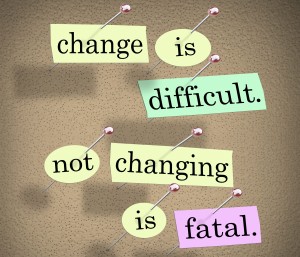#Your Career : When a Change in Times Means a Change of Plans. One Thing is Certain: Many of Today’s Changes we are Seeing in the World Today are Here to Stay.
Most would agree that present-day living looks a lot different from what it used to be before the pandemic. While some would say it is for the better, others may be finding the drastic changes we’ve experienced throughout the pandemic unsettling, to say the least. But wherever you are on the spectrum, from loving it to loathing it to at least tolerating it, one thing is certain: many of the changes we are seeing in the world today are here to stay.
Here’s how to make the most of it and embrace the unknown instead of looking ahead with apprehension.
Doing more of what you love
Adjusting to a new way of living has meant for many a change in lifestyle. And if you’ve found that you haven’t been able to adapt to these changes as easily as you had hoped and you want to find new meaning in the days that lie ahead, the solution is simple – find ways to do more of what you love. You’ll not only be happier for it, but you’re sure to experience a level of contentment you might never have known otherwise.
You can start by focusing on how you can grow and strengthen aspects of your life, whether it be health-wise, reaching your fitness goals, or even new career goals. Speaking of reaching new professional heights, perhaps you’ve had the novel idea of starting a business yourself as a result of your newfound passion.
In which case, you could start with looking into an LLC as a type of business worth pursuing if you are a solo entrepreneur. Do I need an LLC to start a business? If you want to start off small with a company with fewer requirements, specific tax advantages, a lot less paperwork, and flexible enough to accommodate your changing needs, an LLC could be the ideal business solution for you. A formation like ZenBusiness can help you make quick work of this task.
Or maybe as the pandemic has progressed — we are a year and half into this thing after all! — you’ve been able to grow a business and now you’re ready to take it to the next level. You can take advantage of the many folks looking to change careers right now by looking into freelancer sites to find the right people to help you make your business bigger and better than ever.
Like this Article? Share It! You now can easily enjoy/follow/share Today our Award-Winning Articles/Blogs with Now Over 2.5 Million Growing Participates Worldwide in our various Social Media formats below:
LinkedIn: https://www.linkedin.com/in/chris-g-laughter-b46389198/
Twitter: Follow us @ firstsunllc
Best Daily Choice: Follow the Best of FSC Career Articles/Blogs @
https://twitter.com/search?q=bestoffscblog&src=typeahead_click
Question: Want the ‘the best/current articles/blogs on the web’ on Job Search, Resume, Advancing/Changing your Career, or simply Managing People?
Answer: Simply go to our FSC Career Blog below & Type(#Jobsearch, #Resume, or #Networking) in Blog Search: https://www.firstsun.com/fsc-career-blog/
What Skill Sets Do You have to be ‘Sharpened’ ?
Did you know? First Sun Consulting, LLc (FSC) is celebrating over 30 years in the delivery of corporate & individual outplacement services & programs to over 1200 of our corporate clients in the U.S., Canada, UK, & Mexico!
We here at FSC want to thank each of corporate partners in the opportunity in serving & moving each of their transitioning employee(s) rapidly toward employment !
Article continued …
Show your support
If anything, the pandemic has taught us the steadfast resilience of humanity and how important relationships are in the broader scheme of things. As everything shut down, many of us found new ways we could connect with friends, loved ones, coworkers, clients, and more virtually. For many, it led to the revelation that we are all connected to each other in some way and that we need assistance and support from one another to reach our goals–and we’re the better for it.
So if there are people struggling in your community as they try to come back from the devastation that the pandemic has caused, why not lend a helping hand to those in need? And if you find yourself needing help, well, then gladly accept it.
Revel in nature
Spending time outdoors and reveling in the beauty that is nature is beneficial for your overall physical and mental well-being. And as much as nature is something to truly behold, it also deserves our respect. We need to tend to it well, and to acknowledge our dependence on our earth that gives so much to us and expects little in return.
When change is a good thing
Indeed, change can be unsettling and can even seem a little frightening. Still, it can also be exciting and liberating, freeing us from stale mindsets that need to be readjusted to see the beginnings and promise of a new dawn. And if change is inevitable (as it most assuredly is), then we may as well do our best to embrace it!
FSC Career Blog Author: Ms. Gloria Martinez . You can reach Gloria @ g.martinez@womenled.org
FSC Career Blog – March 9, 2022




 Which one are You?
Which one are You?